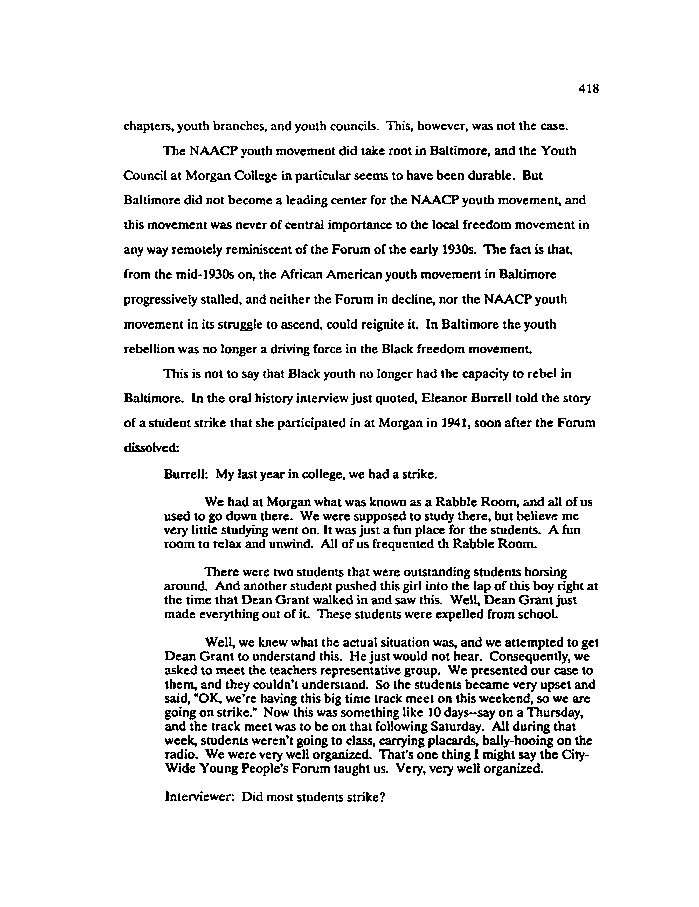|
418
chapters, youth branches, and youth councils. This, however, was not the case.
The NAACP youth movement did take root in Baltimore, and the Youth
Council at Morgan College in particular seems to have been durable. But
Baltimore did not become a leading center for the NAACP youth movement, and
this movement was never of central importance to the local freedom movement in
any way remotely reminiscent of the Forum of the early 1930s. The fact is that,
from the mid-1930s on, the African American youth movement in Baltimore
progressively stalled, and neither the Forum in decline, nor the NAACP youth
movement in its struggle to ascend, could reignite it. In Baltimore the youth
rebellion was no longer a driving force in the Black freedom movement.
This is not to say that Black youth no longer had the capacity to rebel in
Baltimore. In the oral history interview just quoted, Eleanor Burrell told the story
of a student strike that she participated in at Morgan in 1941, soon after the Forum
dissolved:
Burrell: My last year in college, we had a strike.
We had at Morgan what was known as a Rabble Room, and all of us
used to go down there. We were supposed to study there, but believe me
very little studying went on. It was just a fun place for the students. A fun
room to relax and unwind. All of us frequented th Rabble Room.
There were two students that were outstanding students horsing
around. And another student pushed this girl into the lap of this boy right at
the time that Dean Grant walked in and saw this. Well, Dean Grant just
made everything out of it. These students were expelled from school.
Well, we knew what the actual situation was, and we attempted to get
Dean Grant to understand this. He just would not hear. Consequently, we
asked to meet the teachers representative group. We presented our case to
them, and they couldn't understand. So the students became very upset and
said, "OK, we're having this big time track meet on this weekend, so we are
going on strike." Now this was something like 10 days-say on a Thursday,
and the track meet was to be on that following Saturday. All during that
week, students weren't going to class, carrying placards, bally-hooing on the
radio. We were very well organized. That's one thing I might say the City-
Wide Young People's Forum taught us. Very, very well organized.
Interviewer: Did most students strike?
|

